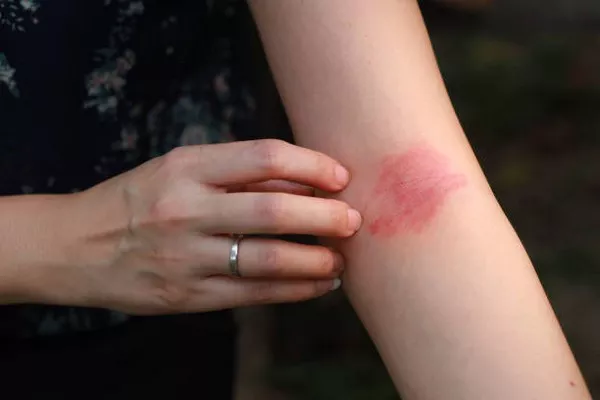Histamine intolerance is a condition that is gaining recognition in the field of health and wellness, yet remains widely misunderstood by many. With symptoms ranging from mild discomfort to severe reactions, histamine intolerance can significantly impact an individual’s quality of life. In this comprehensive article, we delve into the intricacies of histamine intolerance, exploring its causes, symptoms, diagnosis, and management strategies.
What is Histamine Intolerance?
Histamine is a chemical compound produced naturally by the body and is also found in certain foods. It plays a vital role in various physiological processes, including immune response, digestion, and neurotransmission. However, for some individuals, an imbalance of histamine levels in the body can lead to histamine intolerance.
Histamine intolerance, also known as histamine sensitivity, occurs when the body is unable to adequately break down histamine or regulate its levels. This imbalance can result in an accumulation of histamine in the body, leading to a wide range of symptoms.
Causes of Histamine Intolerance
Histamine intolerance can stem from various factors, including:
Enzyme Deficiency: Histamine is primarily broken down by enzymes called diamine oxidase (DAO) and histamine N-methyltransferase (HNMT). Deficiencies in these enzymes can impair the body’s ability to metabolize histamine efficiently, contributing to histamine intolerance.
Genetics: Genetic variations can influence the production and function of histamine-metabolizing enzymes, predisposing individuals to histamine intolerance.
Gut Health: Disruptions in gut health, such as dysbiosis (imbalance of gut microbiota) or intestinal permeability (leaky gut), can impair the clearance of histamine from the digestive tract, exacerbating histamine intolerance.
Dietary Factors: Certain foods are naturally high in histamine or can trigger the release of histamine in the body. Consumption of these foods, along with alcohol and fermented products, can contribute to histamine intolerance.
Symptoms of Histamine Intolerance
The symptoms of histamine intolerance can vary widely among individuals and may include:
- Skin issues (e.g., hives, eczema, itching)
- Digestive problems (e.g., bloating, diarrhea, abdominal pain)
- Headaches or migraines
- Nasal congestion or sinus issues
- Respiratory symptoms (e.g., wheezing, shortness of breath)
- Fatigue and lethargy
- Anxiety or nervousness
- Fluctuations in blood pressure
- Menstrual irregularities
These symptoms can range from mild to severe and may occur shortly after consuming histamine-rich foods or beverages.
Diagnosis of Histamine Intolerance
Diagnosing histamine intolerance can be challenging, as there is no definitive test available. Healthcare providers typically rely on a combination of medical history, symptom assessment, and dietary analysis to evaluate the possibility of histamine intolerance.
Management of Histamine Intolerance
While there is no cure for histamine intolerance, management strategies aim to reduce histamine levels in the body and alleviate symptoms. Some approaches include:
Dietary Modifications: Following a low-histamine diet involves avoiding or limiting histamine-rich foods, such as aged cheeses, cured meats, fermented products, and certain vegetables (e.g., tomatoes, spinach). Additionally, reducing the intake of histamine-releasing foods, such as alcohol, citrus fruits, and processed foods, may help manage symptoms.
DAO Supplementation: Oral supplements containing diamine oxidase (DAO) enzymes can help enhance the body’s ability to break down histamine from ingested foods. These supplements are typically taken before meals to support histamine metabolism.
Probiotics: Certain strains of probiotics may help restore gut health and improve histamine metabolism in individuals with histamine intolerance. Lactobacillus rhamnosus and Bifidobacterium infantis are among the probiotic strains studied for their potential benefits in histamine intolerance.
Medications: In some cases, healthcare providers may prescribe antihistamine medications to alleviate symptoms of histamine intolerance. However, these medications may only provide temporary relief and do not address the underlying cause of histamine intolerance.
Lifestyle Modifications: Adopting lifestyle practices that promote overall health and well-being can complement other management strategies for histamine intolerance. This may include stress management techniques, regular exercise, adequate sleep, and mindfulness practices.
See Also: 10 Common Foods That May Cause Skin Itching
Conclusion
Histamine intolerance is a complex condition characterized by an imbalance of histamine levels in the body, leading to a diverse array of symptoms. While the exact cause of histamine intolerance may vary among individuals, factors such as enzyme deficiency, genetics, gut health, and dietary choices can contribute to its development.
Effective management of histamine intolerance often involves dietary modifications, supplementation, probiotics, medications, and lifestyle adjustments. By addressing the underlying factors contributing to histamine intolerance and adopting targeted management strategies, individuals with histamine intolerance can experience symptom relief and improve their overall quality of life.


